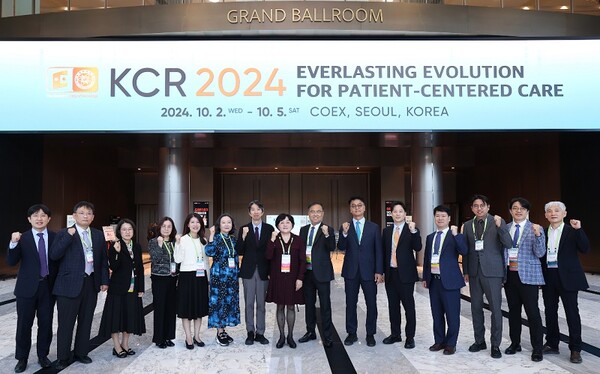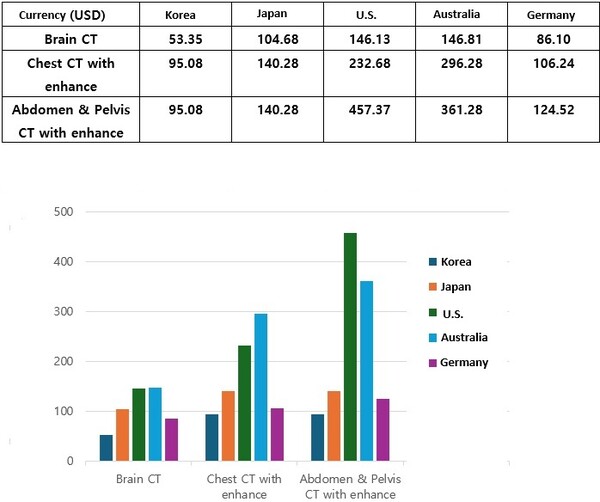The Korean Society of Radiology (KSR) has raised concerns about the undervaluation of medical imaging procedures and the need to reduce unnecessary imaging tests.

At a press conference during their annual scientific meeting, the Korean Congress of Radiology (KCR 2024), held at COEX in Seoul on Wednesday, the society highlighted several key issues facing the field of radiology in Korea.
KSR Health Insurance Committee Chair Professor Lee Choong-wook pointed out that imaging fees in Korea are significantly lower compared to other countries.
"CT scan fees in Korea are only about one-third of those in the U.S. and Australia," Lee said. “Despite this disparity, the government and the Ministry of Health and Welfare continue to perceive imaging fees as high.”
The society argued that while equipment costs may have decreased due to economies of scale, the value of radiologists' work in interpreting these images remains consistently high. They propose separating the fees for conducting the test from the interpretation fees to properly recognize the labor value of radiologists.
Over the past decade, reimbursement rates for imaging procedures have effectively decreased when adjusted for inflation. In 2012, fees for CT and MRI were cut by 15.5 percent and 24 percent respectively, with an additional 5 percent reduction in 2017.
The situation worsened in 2024 when a new policy eliminated additional payments for specialized hospitals, resulting in a 15 percent fee reduction for tertiary hospitals.
This has led to an unusual situation where some imaging procedures are now reimbursed at higher rates in clinics than in specialized hospitals. For example, a contrast-enhanced abdominal CT scan is reimbursed at 148,460 won ($112) in clinics but only 128,800 won in tertiary hospitals.
While reimbursement rates have been declining, the costs of providing imaging services continue to rise. High-performance CT devices for cardiac imaging can cost over 2 billion won, with increasing maintenance expenses. Staffing costs are also rising, as each imaging procedure typically requires at least one doctor, nurse, and radiologic technologist.

“Korea’s imaging fees are now less than 30 percent of those in the U.S. and significantly lower than in Germany, Japan, and Australia,” Lee said.
The KSR warned that consistently low reimbursement rates may lead to several negative consequences.
“Hospitals may perform unnecessary tests to compensate for low fees, potentially exposing patients to unnecessary radiation,” Lee said. “Radiologists also face increasing workloads, leading to burnout and staffing shortages.”
As a result, the quality of imaging services may eventually decline if the trend continues, Lee added.
To address these issues, the KSR is advocating for a two-pronged approach -- fair compensation for imaging services and a reduction in unnecessary tests.
"Unnecessary tests not only increase overall medical costs but also delay care for patients who truly need imaging,” KSR Secretary General Hwang Sung-il said. “The society plans to work on developing clinical guidelines for imaging and implementing an appropriateness evaluation system for imaging tests.”
KSR also aims to reduce duplicate tests performed when patients transfer between medical facilities, Hwang added.
KSR President Jung Seung-eun concluded, "The fact that we've maintained world-class quality in imaging and interpretation despite continuous fee reductions over the past decade is a testament to the efforts of Korean radiologists.”
To sustain the high accessibility and quality of imaging services for Korean patients, the society needs both a restriction on unnecessary tests and appropriate fee increases, she added.
Jung stressed that KSR plans to collaborate with the Health Insurance Review and Assessment Service and the National Health Insurance Service to analyze big data on imaging utilization and conduct prospective monitoring to evaluate the appropriateness of imaging tests.

